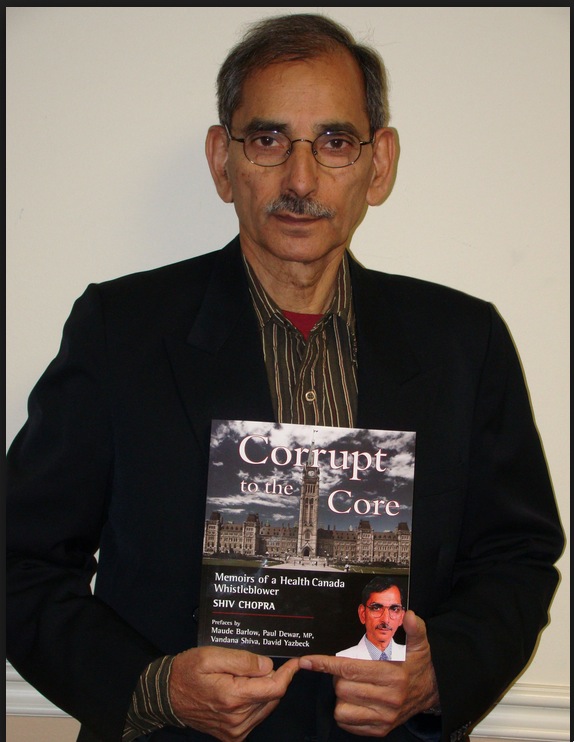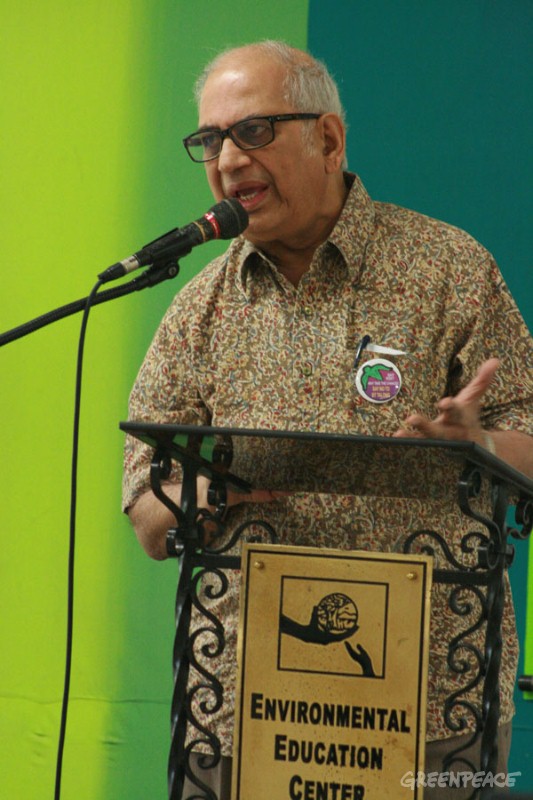
Dr. Shiv Chopra
Dr. Shiv Chopra is a Canadian icon, a food and health scientist that was fired for doing a good job in health Canada, in resisting incursion of questionable food and agri-products patented by foreign corporations that did not meet required safety criteria.
He has explained his long service with health Canada, and circumstances under which he and his colleagues were fired for whistle-blowing, in a book – Corrupt To The Core, memoirs of a Health Canada Whistleblower.
Myself and Teresa Lynn of Port Coquitlam got Dr. Shiv Chopra on a conference call this morning, on April 25, 2013, and recorded the conversation. It was almost an hour long. Since it covered a lot more ground than just GMO, and since people do not usually have patience to listen through an hour of talk, I had to edit it and split the discussion into sections, and keep the GMO sections together to create a 21 minute podcast.
The take away lesson from Dr. Chopra for us was, just like the Occupy movement going on everywhere, we should occupy our health and our food chain and tell the Govt and the Corporations to leave our food and our body, alone.
Another take away lesson was – Economy and GDP is fine, but food should be out of the economic design where profit trumps good living and good health. Make money somewhere else. Leave our food alone.
You can listen to the Podcast at the bottom of this page. Alternately, you can also find this, and other podcasts from this blog at iTunes. Type “Tonu” in the search field in iTunes, which is my pet name, and the name attached to this blog, and hence the Podcast. iTunes will show a number of items in result. Scroll down to the Podcast section, and you should find Tonu – Tony Mitra, among a handful of podcasts.

- Memoirs of a Health Canada Whistleblower
You can either listen to this and other podcasts directly from there, or you can subscribe to it, and get it into your computer, or iPod or iPhone etc.
Your comments are welcome. If you do not have an account with WordPress blogging, you can get one. Alternately, you can send me an email at tonu@tonu.org, or tony.mitra@gmail.com or tonu@me.com
Thanks.


